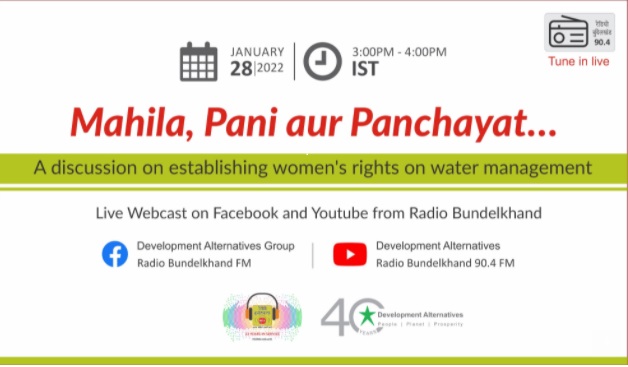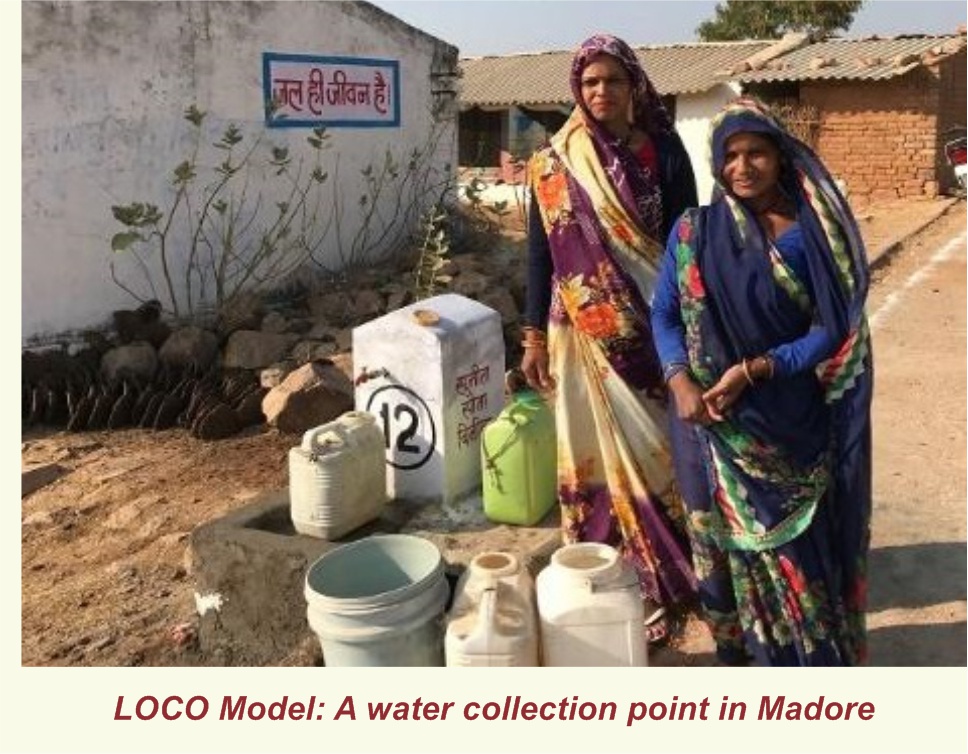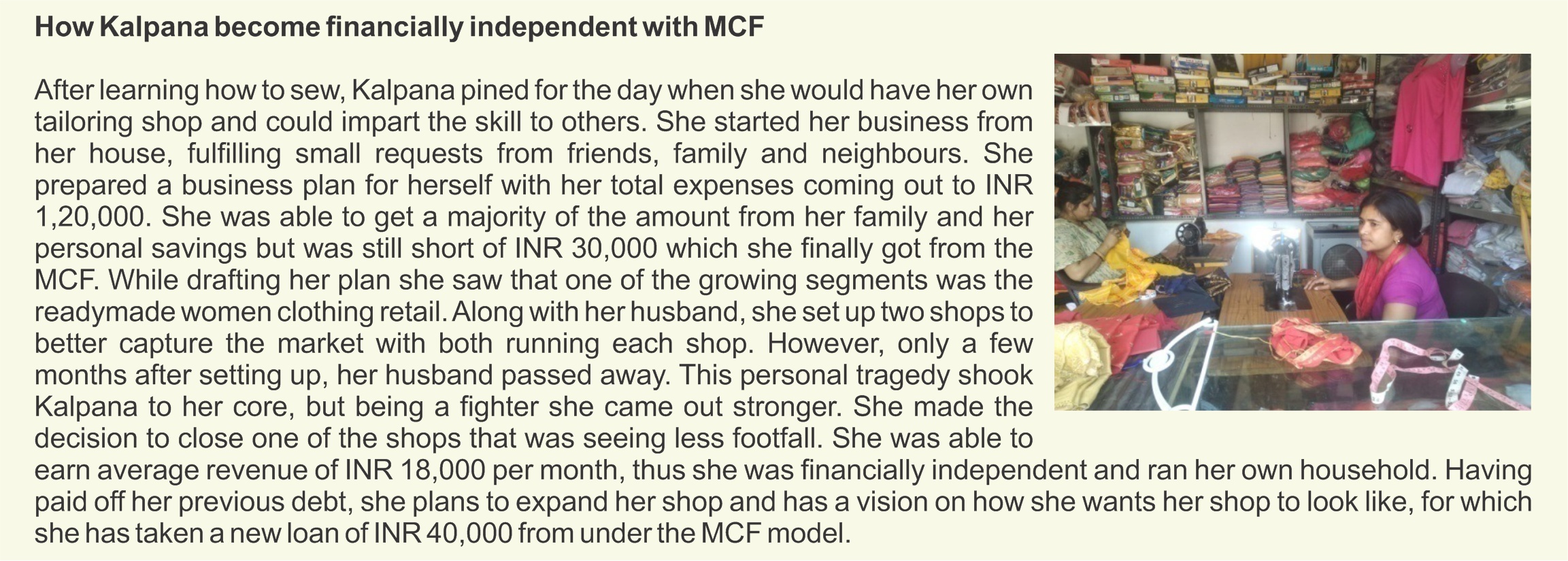Women, Water and Empowerment:
Two Tales from Bundelkhand
The better half and better resource management
Recurring and long droughts, attributed by scientists to climate change, are
playing havoc with the lives of 14 million poor and marginalised people of
Bundelkhand region in central India. The vulnerable sections of society are
the ones that suffer the most as a result of inadequate and improper
awareness initiatives. Women, constituting the majority of the vulnerable,
are proportionally more reliant on threatened natural resources and are
increasingly seen as being more exposed to the effects of climate change.
Women have long been relegated from actively making decisions pertaining to the use and consumption of water resources, yet they play a pivotal role in its collection. Increasingly more focus is shifting towards expanding their participation for sustainable management of water resources. Effective participation and being ‘heard’ is dependent on a systemic shift within the local societal structures.
 One
such decentralised initiative to induce a systemic shift in women
participation in making decisions on water resources is the ‘Locally
Operated, Community Owned’ (LOCO) model of water management. Long spells of
dry seasons have stressed much of the resources in Bundelkhand forcing
communities to seek out alternatives. A hamlet in Madore, Jhansi, recognised
that individual efforts would further stress the remaining resources and it
would be best for the community as a collective to take ownership and manage
the collection and delivery of water. The system they instituted was much
more inclusive and many diverse voices are now being heard on managing local
water resources. Radha, a resident of Madore, was elected to chair the
management committee responsible for maintaining the LOCO model in her
village which she says is their right as they bear the brunt of its
mismanagement.
One
such decentralised initiative to induce a systemic shift in women
participation in making decisions on water resources is the ‘Locally
Operated, Community Owned’ (LOCO) model of water management. Long spells of
dry seasons have stressed much of the resources in Bundelkhand forcing
communities to seek out alternatives. A hamlet in Madore, Jhansi, recognised
that individual efforts would further stress the remaining resources and it
would be best for the community as a collective to take ownership and manage
the collection and delivery of water. The system they instituted was much
more inclusive and many diverse voices are now being heard on managing local
water resources. Radha, a resident of Madore, was elected to chair the
management committee responsible for maintaining the LOCO model in her
village which she says is their right as they bear the brunt of its
mismanagement.
In this context, on January 28, 2022, Radio Bundelkhand and Development Alternatives conducted their first live webcast on ‘Mahila, Pani aur Panchayat’. The discussion was focused on establishing women’s rights on water management in Bundelkhand region. The aim was to create awareness about the importance of water, how its availability particularly affects women and the role they can play in ensuring a sustainable and safe supply of this resource. The webcast brought together speakers from the community – Radha Ahirwar of Mador village, Guddo Adivasi of Jijaura village, Mamta Bundela, a LOCO model user from Punawali Kala village and Manvendra Singh, sarpanch of Gidgani village – as well as subject matter experts Dr. Sandeep Arya, assistant professor (environment and development), Rishabh Singh, manager, (watershed management), Dr. Satabdi Dutta, social science researcher, and Vineeta Khatri, C4D specialist.
 The
discussion focussed on the impact of environmental, social, and economic
factors on water use as well as the ways in which women may contribute to
water resource management. The ways to solve the concerns in the future were
also considered, including better governance systems and water management
techniques based on communities’ lived experiences. Through live broadcast
and webcast on Radio Bundelkhand and DA’s Facebook and YouTube accounts, the
event reached a larger audience across the country. The webcast was attended
by youth and women from Bundelkhand, who were enthusiastic to start a new
day by learning more about water management and issues related to it. Going
forward, it is abundantly clear that the local resources need to be
responsibly managed by systems and institutions that are inclusive in their
ownership.
The
discussion focussed on the impact of environmental, social, and economic
factors on water use as well as the ways in which women may contribute to
water resource management. The ways to solve the concerns in the future were
also considered, including better governance systems and water management
techniques based on communities’ lived experiences. Through live broadcast
and webcast on Radio Bundelkhand and DA’s Facebook and YouTube accounts, the
event reached a larger audience across the country. The webcast was attended
by youth and women from Bundelkhand, who were enthusiastic to start a new
day by learning more about water management and issues related to it. Going
forward, it is abundantly clear that the local resources need to be
responsibly managed by systems and institutions that are inclusive in their
ownership.
Micro-credit facility as a model of economic empowerment
Access to formal sources of finance is a major challenge faced by most micro-enterprises, especially in rural India. This leads to one of the two situations, either the entrepreneur is forced to take a loan from an informal source and get caught in ‘debt trap’, or they abandon the idea of starting their enterprise altogether.
Development Alternatives and "la Caixa" Banking Foundation through their Work4Progress India programme are tackling the challenge of access to formal finance for micro-enterprises by leveraging the power of ‘community influence’ to develop a micro-credit facility (MCF) model. The MCF has become a strong and flexible medium for providing credit support to entrepreneurs in Bundelkhand. The success of the model indicates its potential to connect with other prototype models that remove barriers to entrepreneurship in the programme such as its connections with information kiosks (a decentralised prototype that act as local platforms to enable access to enterprise support services), in providing alternative sources of credit and channels of credit assessment.
The micro-credit facility as an innovative model of credit disbursal has led to the support of 228 entrepreneurs out of which 38% are women. The model has led to an increase in the number of women entrepreneurs in accessing credit to set up their enterprises while also reducing bottlenecks by providing micro-loans (up to INR 50,000) to micro-enterprise projects that are technically feasible and financially viable and simplifying the process. The credit facility has proven the ease of access to formal sources of credit support in the region, helping the bankers in building the trust with entrepreneurs. This can be attributed to good practices of the entrepreneurs within the community as well as the trust between the facility and the community.

Shivankar Mohan
smohan@devalt.org